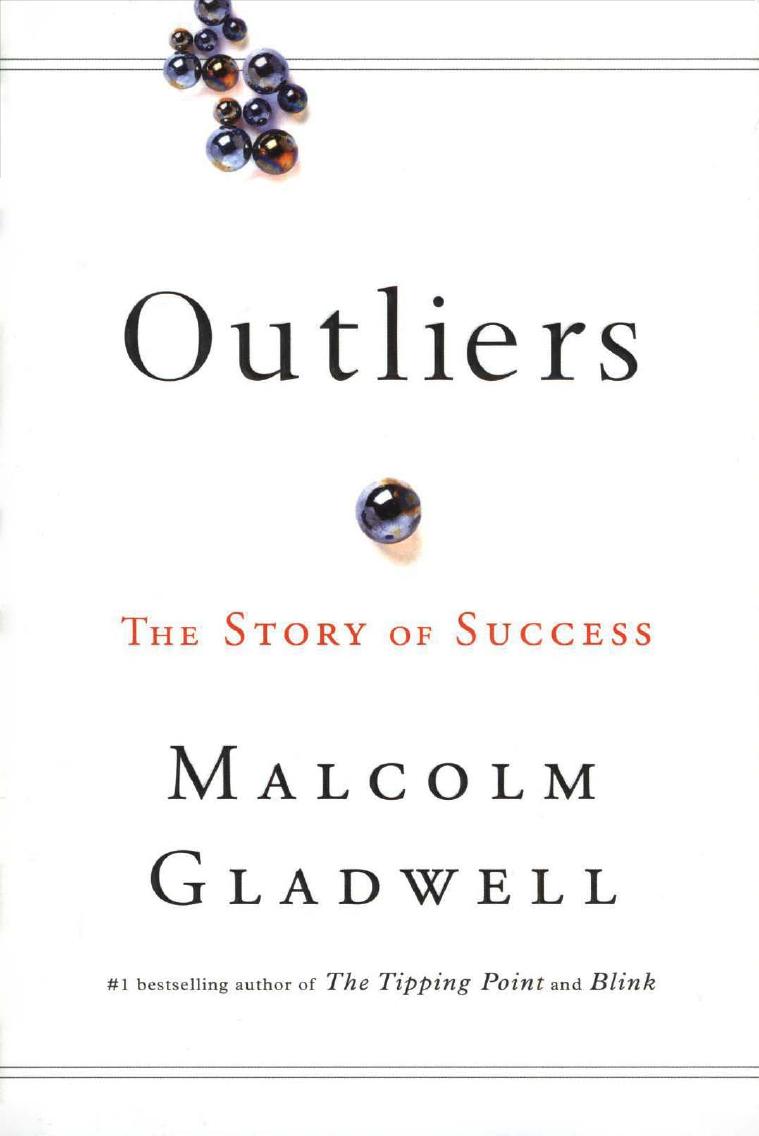Outliers: The Story of Success by Malcolm Gladwell

Author:Malcolm Gladwell [Gladwell, Malcolm]
Language: eng
Format: epub, mobi, azw3, pdf
Tags: General, Business & Economics, Social Psychology, Psychology, Success, Self-Help, Personal Growth, Successful people
ISBN: 9780316017923
Publisher: Little, Brown and Company
Published: 2008-11-17T05:00:00+00:00
2.
Suppose you were sent to Harlan in the late nineteenth century to investigate the causes of the Howard-Turner feud. You lined up every surviving participant and interviewed them as carefully as you could. You subpoenaed documents and took depositions and pored over court records until you had put together a detailed and precise accounting of each stage in the deadly quarrel.
How much would you know? The answer is, not much. You’d learn that there were two families in Harlan who didn’t much like each other, and you’d confirm that Wilse Howard, who was responsible for an awful lot of the violence, probably belonged behind bars. What happened in Harlan wouldn’t become clear until you looked at the violence from a much broader perspective.
The first critical fact about Harlan is that at the same time that the Howards and the Turners were killing one another, there were almost identical clashes in other small towns up and down the Appalachians. In the famous Hatfield-McCoy feud on the West Virginia–Kentucky border not far from Harlan, several dozen people were killed in a cycle of violence that stretched over twenty years. In the French-Eversole feud in Perry County, Kentucky, twelve died, six of them killed by “Bad Tom” Smith (a man, John Ed Pearce writes in Days of Darkness, who was “just dumb enough to be fearless, just bright enough to be dangerous, and a dead shot”). The Martin-Tolliver feud, in Rowan County, Kentucky, in the mid-1880s featured three gunfights, three ambushes, and two house attacks, and ended in a two-hour gun battle involving one hundred armed men. The Baker-Howard feud in Clay County, Kentucky, began in 1806, with an elk-hunting party gone bad, and didn’t end until the 1930s, when a couple of Howards killed three Bakers in an ambush.
And these were just the well-known feuds. The Kentucky legislator Harry Caudill once looked in a circuit court clerk’s office in one Cumberland Plateau town and found one thousand murder indictments stretching from the end of the Civil War, in the 1860s, to the beginning of the twentieth century—and this for a region that never numbered more than fifteen thousand people and where many violent acts never even made it to the indictment stage. Caudill writes of a murder trial in Breathitt County—or “Bloody Breathitt,” as it came to be known—that ended abruptly when the defendant’s father, “a man of about fifty with huge handlebar whiskers and two immense pistols,” walked up to the judge and grabbed his gavel:
The feudist rapped the bench and announced, “Court’s over and ever’body can go. We ain’t agoin’ to have any court here this term, folks.” The red-faced judge hastily acquiesced in this extraordinary order and promptly left town. When court convened at the next term the court and sheriff were bolstered by sixty militiamen, but by then the defendant was not available for trial. He had been slain from ambush.
When one family fights with another, it’s a feud. When lots of families fight with one another in identical little towns up and down the same mountain range, it’s a pattern.
Download
Outliers: The Story of Success by Malcolm Gladwell.mobi
Outliers: The Story of Success by Malcolm Gladwell.azw3
Outliers: The Story of Success by Malcolm Gladwell.pdf
This site does not store any files on its server. We only index and link to content provided by other sites. Please contact the content providers to delete copyright contents if any and email us, we'll remove relevant links or contents immediately.
Rewire Your Anxious Brain by Catherine M. Pittman(17601)
Talking to Strangers by Malcolm Gladwell(11910)
The Art of Thinking Clearly by Rolf Dobelli(8873)
Mindhunter: Inside the FBI's Elite Serial Crime Unit by John E. Douglas & Mark Olshaker(7851)
Becoming Supernatural by Dr. Joe Dispenza(7121)
Change Your Questions, Change Your Life by Marilee Adams(6663)
The Road Less Traveled by M. Scott Peck(6650)
Nudge - Improving Decisions about Health, Wealth, and Happiness by Thaler Sunstein(6644)
The Lost Art of Listening by Michael P. Nichols(6485)
Enlightenment Now: The Case for Reason, Science, Humanism, and Progress by Steven Pinker(6416)
Win Bigly by Scott Adams(6328)
Mastermind: How to Think Like Sherlock Holmes by Maria Konnikova(6257)
The Way of Zen by Alan W. Watts(5813)
Daring Greatly by Brene Brown(5652)
Grit by Angela Duckworth(4748)
Big Magic: Creative Living Beyond Fear by Elizabeth Gilbert(4737)
Men In Love by Nancy Friday(4342)
Flow by Mihaly Csikszentmihalyi(4062)
The Four Tendencies by Gretchen Rubin(4031)
